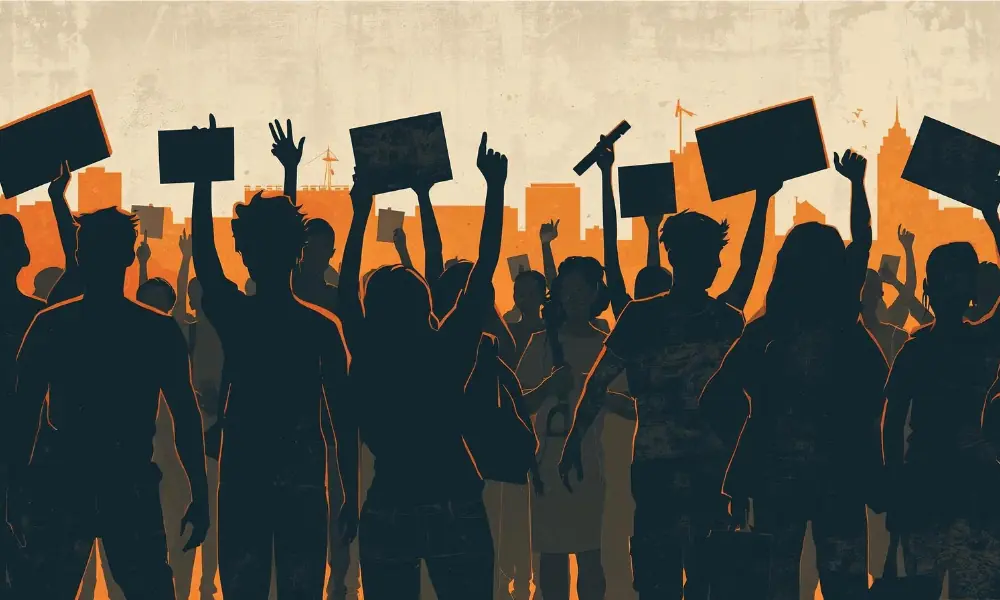by AASIM SAJJAD AKHTAR

The youth have shown they can shake regimes — but without organisation, ideology, and economic transformation, their fury may only deepen the status quo.
In 2011, the much feted Arab Spring was triggered by the self-immolation of a well-educated street vendor in Tunisia, spreading to Egypt, Bahrain and many other countries. Millions of people came out onto the streets in defiance of dictators and monarchs who had ruled with an iron fist for decades.
The people had their victory, deposing hated figures like Zine El Abidine Ben Ali and Hosni Mubarak. But ultimately, the Arab Spring left a bitter taste. Authoritarian regimes and an even more exploitative capitalist order were restored in almost all of the Middle East and North Africa. Countries like Syria and Libya were ravaged by imperialist-sponsored proxy wars. Almost 15 years on, the status quo has not only been restored but appears even more entrenched.
The spontaneous mass protests which shook Nepal in early September generated a great deal of commentary in Pakistan, with some making comparisons to the Arab Spring. By joining the dots and linking the Nepali case with Sri Lanka’s mass uprisings of 2022 and the student-led movement which deposed Sheikh Hasina in Bangladesh in 2024, some suggested that South Asia is the new Middle East.
A new normal has indeed emerged in how young, alienated masses articulate their politics. The question, however, is what lies at the end of this new modality of political assertion.
To answer that, it helps to trace the commonalities and differences among uprisings across South Asia in recent years, and to situate them alongside similar movements in other parts of the world, from the Middle East to beyond. Whether Pakistan and its neighbours reinforce these global trends or chart their own path remains to be seen. What is certain, though, is that the politics of the (youth) bulge is here to stay.
It’s the economy, stupid
As in much of the Arab world, economic hardship lies at the heart of recent popular upsurges across our region. In Nepal, young people poured onto the streets after the government banned social media platforms — tools they rely on not only to vent anger against the prevailing order but also as a means of securing highly precarious gig work. Successive left-leaning governments have failed to create adequate livelihood opportunities, with un- and underemployment rates estimated to be over 20 per cent.. Little wonder, then, that vast numbers of Nepalis seek work abroad, with remittances now accounting for an astonishing 33pc of the country’s GDP.
Dawn for more
